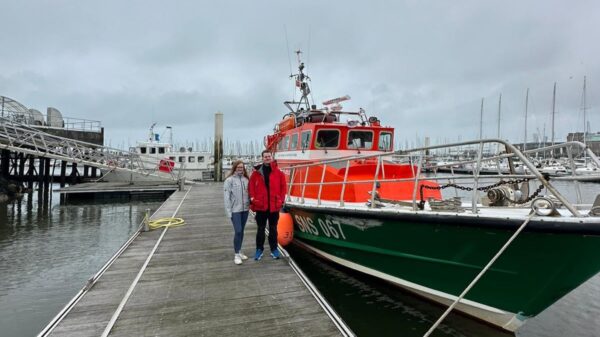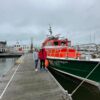YOUR body, its muscular architecture, circulatory systems and skeleton have evolved to ‘resist’ the force of gravity; in space this force is reduced.
As your body is an incredible adapting organism, it reduces its muscle and bone mass. This can lead to safety issues, especially for long term space exploration where on return to a gravity body i.e. Earth or Mars, the risk of injury, fracture and reduced occupational capacity is higher.
My colleagues and I have developed a skinsuit to help counter back pain in space in collaboration with European Space Agency (ESA) and MIT.
Considerable research has been performed to improve the safety of space flight; however due to the continued lack of loading on the body, current countermeasures are still not effective enough at attenuating this degradation, so the need for low cost, volume and effective countermeasure exists.
Two hours exercise a day
The gravity loading countermeasure skinsuit (GLCS) utilises a lightweight, non-compressive, elastic weave to generate a calculated, staged, loading regime that mimics, with high resolution, the force or ‘pull’of gravity (1G) on the musculoskeletal system.
Through testing at King’s College London, we have been able to quantify that the loading, produced by the GLCS’s previous designs, is roughly 60-78% of what we call 1G, thereby providing a potential low cost, low volume means of creating staged loading on the body with the premise that it can be easily transported, adorned and integrated into other counter measures, such as exercise.
I mention exercise particularly, as in space, astronauts currently perform two hours a day of training just to maintain their musculoskeletal capacity, however, as stated already, this can still degrade in space due to the lack of loading.
At King’s under the supervision of Dr David Green, myself and Julia Attias (a fellow researcher and future PhD student at King’s) have investigated the potential for the suit to integrate with exercise by analysing its effects on the body during exercise and a range of motion.
We have also investigated the thermal properties of wearing the suit, safety elements and comfort.
Terrestrial technology to every day items
This research has been presented at multiple conferences and as result of its success the skinsuit has been accepted for spaceflight in 2015 where Andreas Mogensen will wear it for the first time in space.
To facilitate this mission King’s is performing further investigations with our long term partners at the MIT and the Crew medical support office at the European space agency.
On a broad scale the entire earth communication network (telecommunication, social media, stock markets, internet) relies on and is a product of space technology.
Computer chips, medical imaging devices, clothing manufacturing, antibiotic development, weather and hazard analysis all are examples of terrestrial benefits from space.
In terms of the GLCS, at King’s, in partnership with MIT and ESA we are exploring how the suit could also be used to alleviate lowerback pain. It could also be used to provide an extra stimulus to athletes, specifically
strength based sports.
With so much exciting and revolutionary research at King’s College, my main advice to any student is to get involved, volunteer for research, be a participant, a team player and above all never be afraid to share your ideas.
King's College London. Award-winning student newspaper, a platform to share your story, and a publication that holds entities accountable when no one else dares.


















